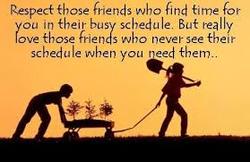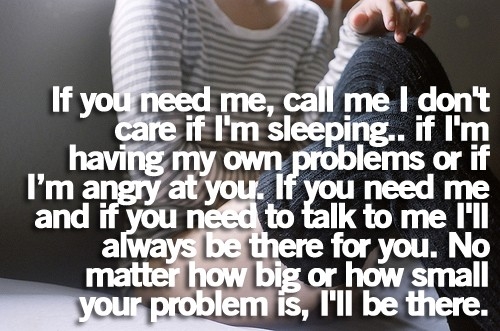
Oftentimes, body language will tell you more than words. Does the person look you in the eye when talking to you? When you ask the person his or her opinion or to do something for you, does that person seem evasive and “walk around the issue?”
The following tips have always worked for me. A genuine person or friend:
· accepts you for who you are.
· always has your back in tough situations and is always there for you to lean on.
· does not talk about you behind your back, or steal things from you, or lie to you - no matter how nice he or she seems.
· makes a commitment to the relationship even when it isn’t perfect.
· won’t betray you.
· is always there for you.
· will try to include you in everything.
Here are some other “detectors” to decide if someone is genuine.
1. Listen to what a person says. A genuine friend makes you feel needed, confident and better about yourself when you are with him or her. This means encouraging you, not putting you down. Genuine friends aren’t afraid to compliment you. A real friend always is cheering for you to succeed, no matter what.
2. A genuine friend takes the time to listen to what you have to say. If the relationship is one-sided, and the other person is always talking about his or her problems and bored when it is your time to share, then you have a problem. So notice how he or she reacts when it is your time to share. Does the person maintain eye contact or look around the room and check for cell phone messages while you are pouring out your heart? See if your friend remembers what you shared. If not, that person wasn’t listening to you. If you are always the one listening, then the relationship is definitely one-sided.
3. If you are on the same level with your friend, you both should be open about your thoughts and feelings and keep an open dialogue. But, if you are not comfortable sharing your feelings for fear he or she will disapprove, the lines of communication aren’t open. If you feel that your friend isn’t being open with you but is with others, then, again, there is a problem with the relationship. When one of you hurts the other’s feelings, being able to express the hurt and talk through it is critical. If you are unable to express that hurt because you think you might lose the friendship, then you again have a problem.
4. Steer away from people who are gossips. Don’t kid yourself that this person isn’t gossiping about you when you are not around.
5. Actions speak louder than words. Does your friend make time for you no matter what? This means taking the time to make and keep appointments with you. If your friend is too busy for you, that’s a problem. Particularly if that person has time for others.
6. The relationship should be 50//50. It should be filled with shared affection and support. This definitely means “if I scratch your back, you will scratch mine.” Did you take chicken soup to your friend when he or she was sick? Did your friend reciprocate in some way when you twisted your ankle and had to spend a week on the couch? Do you make the same effort to talk, hang out or get in touch with each other?
7. If your friend doesn’t stick to his or her word and leaves you high and dry at times, then you have a flake, not a friend.
8. Take the time to do some soul-searching on why the other person might want to befriend you. Does that person value you as a person or is there an ulterior motive? What might be the person’s ulterior motive? Do you provide some type of convenience for that person (like a ride to work)? Are you more popular than your friend, and you are a way into your circle of popularity?)
9. Does your friend make you feel good about yourself? You should feel better about yourself when you are with that person. Does the person make you laugh and feel good or feel worse about yourself? Does he or she sympathize with you over your bad decisions? Or does your friend put you down with snide comments about your actions or appearance. Which do you think is genuine? If the other person makes you less happy when you are around him or her, then you should have a problem with that individual.
10. Does your friend express gratitude for the things you do for him or her on a regular basis? Does the person value your opinions or disregards them? This is the way to determine if your friend makes you feel valuable.
While no relationship is perfect, use these pointers as guidelines to evaluate whether another person is genuine and truly has your best interests at heart. And, don’t forget your own “gut” instinct. We often ignore it and live to regret it.
Til Next Time,
Carol












 RSS Feed
RSS Feed